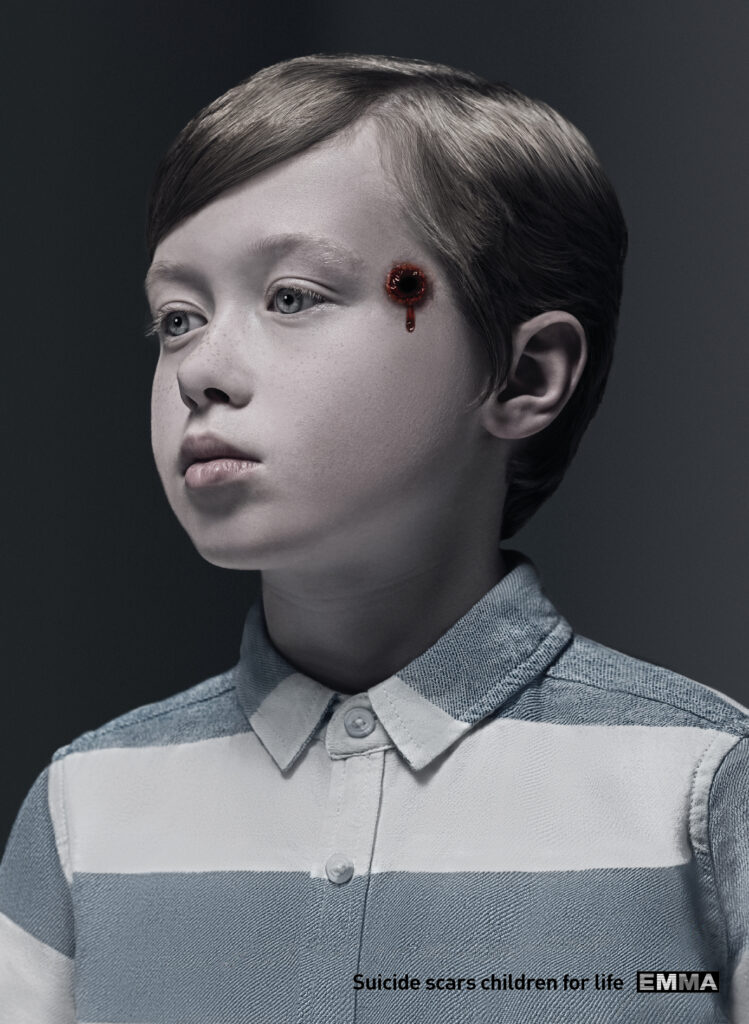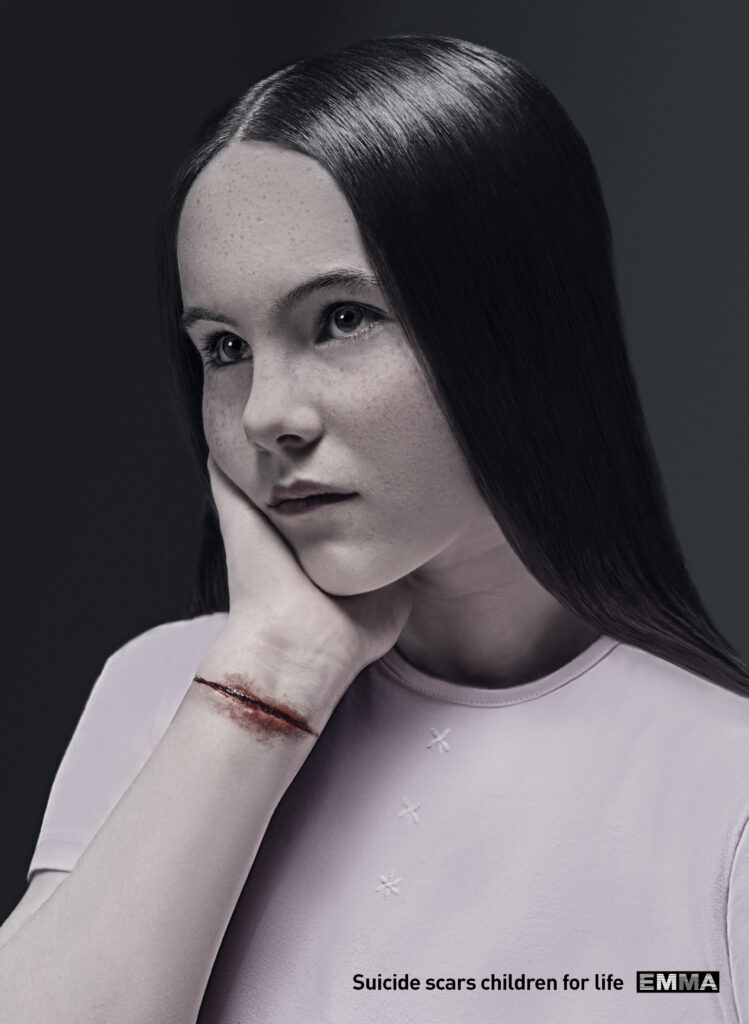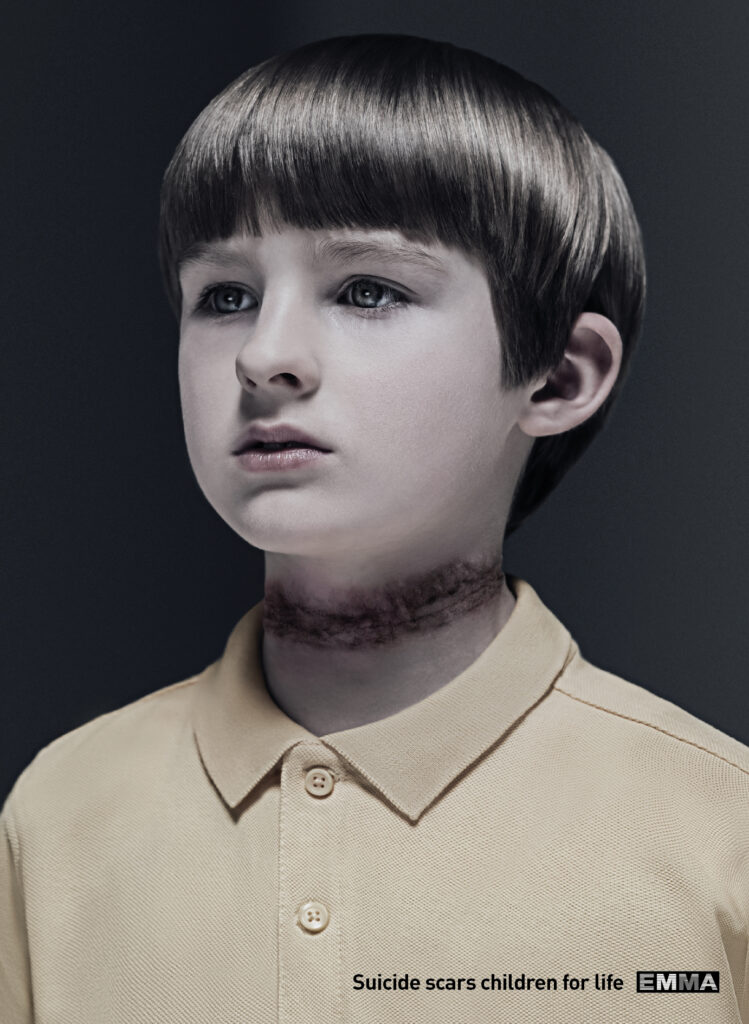Mental Health Campaign




EMMA has been involved in many campaigns, but none were more crucial than dealing with the mental health illness pandemic, leading to suicide in many cases. In 2015, with colleagues from Ogilvy & Mather (Ad Agency), we undertook this essential EMMA Ad campaign, which revolved around life or death. The fact is that many suicides are connected to many forms of Mental Health illnesses, which is a growing concern. This initiative was launched on World Suicide Prevention Day, which takes place on the 10th of September every year.
With this awareness campaign, we tried to tackle the consequences of any person who thinks taking their own life is an easy option without considering the people who will live with this act forever. As a Human Race, we are a community, and we need to work together during the good times and bad to help overcome those serious mental health issues – as a global pandemic.
The Suicide statistics for 2014 speak for themselves in the UK & Republic of Ireland, with 6,213, amounting to 5,821 suicides in the UK and 392 suicides in the Republic of Ireland. In the UK, men remain three times as likely to take their lives than women, as per the Republican of Ireland; they were four times as likely. The highest UK suicide rate is amongst men between the ages of 45 and 49, who do feel powerless on Mental Health issues. The fact that men were told never to discuss their mental health issues adds to their isolation. The Charity “Mind” stated that Mental Health comes in many forms and is extremely hard for a person to detect. This can be through the following symptoms: Anger, Anxiety, and Panic Attacks; Bipolar Disorder; Body Dysmorphic Disorder; Borderline Personality Disorder; Depression; Dissociative Disorders; Drugs – recreational drugs and alcohol; Eating Disorders; Hearing Voices, Hypomania and Mania, Obsessive-Compulsive Disorder, Panic Attacks, Paranoia, to name a few.
We have all encountered persons who have displayed those symptoms, as we have often seen within ourselves. The previous attitude was to either suppress this or laugh it off; if friends are aware of any unusual behaviour, they may laugh it off to help a person cope with those issues.
Maybe the issue of Mental Health illness is seen as a taboo subject for many. This is why our hard-hitting Ad campaign was confrontational: to create a positive shock and at least prompt a person to think about their so-called ‘easy option’. The fact that three members of the Royal Family had started the “Heads Together” campaign to dispel the stigma around Mental Health issues had helped to engage us all directly with this illness for those affected. The high-profile involvement of the then Duke and Duchess of Cambridge, alongside the Duke of Sussex at the time, created a ‘human face’ that everyone could relate to, with the notion that it could happen to anyone – just like a biological illness. The proactive approach they adopted was so needed.
However, it has been argued by some that ‘Mental Health’ is a severe issue amongst the Afro-Caribbean community and certain quarters of the South Asian communities when looking at statistics. For example, African Caribbean people are more likely to enter the Mental Health services via the Courts or the Police, maybe due to racism. South Asian women, especially the young, are seen to be very vulnerable to Mental Health issues, whether it’s based on a Western cultural approach or racist stereotypes, ignoring cultural sensitivities around one’s religion and any spiritual well-being. The growing alienation experienced by individuals, with communities breaking down, has only increased the need to tackle this problem at its core. This is why EMMA is committed to good ‘Social Cohesion’ because regardless of race or one’s financial situation, too many people are committing suicide due to society’s ills. The Welsh Football Manager, Gary Speed, committed suicide in November 2011, leaving behind a devastated family, hence highlighting the fact that this can affect anyone at any time.
Generation Z is often described as the first generation to have grown up with the Internet, including social media, throughout their lives. Gen Z is more technologically savvy than their previous generations; however, they are also more radically and culturally diverse, socially conscious, and vocal about mental health issues. This generation of openness and digital reliance can amplify any ongoing online bullying and contribute to mental health challenges.
Growing depression, which is a mental health disorder characterised by persistent sadness and loss of interest in one’s daily life, has become increasingly common across many generations. However, Generation Z (those born between 1997 and 2012) reports significantly higher rates of depression than older generations, leading to greater Mental Health issues that need tackling.
With the unique challenges faced by Gen Z due to their increasing Mental Health issue, the following research conducted by the Walton Family Foundation has stated that 42% of Gen Z battle with continued depression and feelings of hopelessness, which is almost twice as high as those Americans who are over 25 (23%). In addition, a 2022 federal survey found that of nearly 15,000 Gen Z youth ages 12 to 17, one in five (20%) had a major depressive episode in the previous year, equivalent to 4.8 million adolescents. An even greater share (25%) had either a major depressive episode or a substance use disorder in the past year, which could increase.
Gen Z faces this economic uncertainty, including high living costs and stagnant wages. Many entered adulthood during the COVID-19 pandemic, further exacerbating financial insecurities. Research indicates that 86% of Gen Z are stressed about their present financial situation.


































